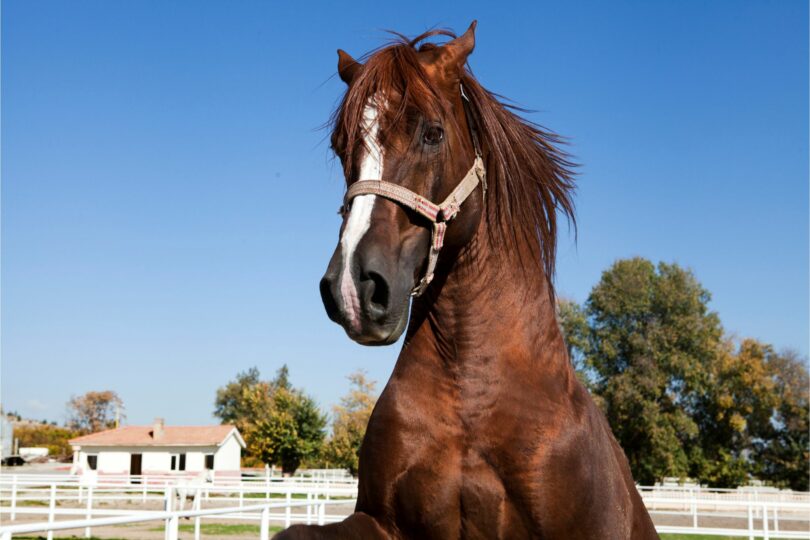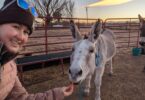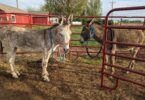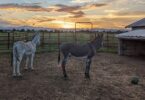Understanding Equine Psychology & Body Language
What scares a horse? The answer is complicated and depends upon the individual horse. Regardless of their level of training or experience, though, horses are prey animals. Being a prey animal means horses are constantly looking for potential threats.
Encountering a sight or sound that scares a horse may cause them to react by either fighting or fleeing; it’s important to note that the preferred response is flight. Keep reading to explore what horses find scary and why. We will also touch on how horse psychology affects their response, and how to claim your personal space.
Equine Psychology 101
Horses are prey animals. This means they are constantly looking for potential threats because they are lower on the food chain than predators.
Horses have survived for thousands of years because of their keen ability to detect potential threats and evade them.
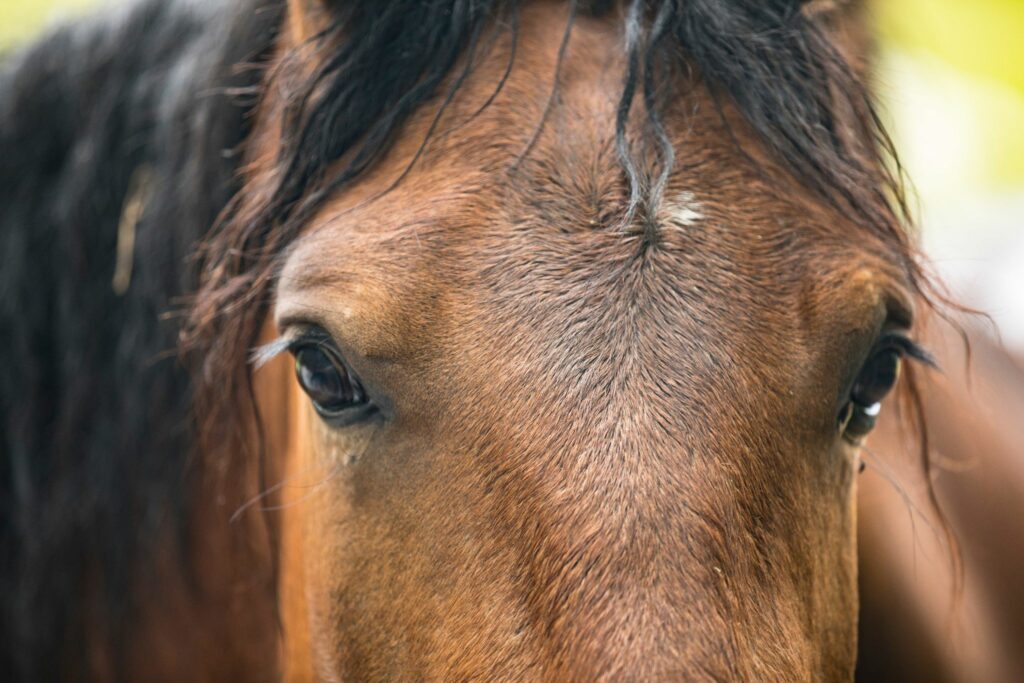
Photo Cred: Canva
A horse’s eyes are on the sides of its head, giving the horse a panoramic view of the world. Their ears can rotate independently, allowing them to focus on sounds from different directions.
This heightened sense of awareness is an evolutionary adaptation that has helped horses survive in the wild. It also means, however, that horses are easily startled by sudden movements or noises.
Fight or Flight Response
When a horse perceives a threat, its instinct is to either fight or flee. This is known as the fight or flight response.
The fight or flight response is an automatic reaction controlled by the sympathetic nervous system.
The sympathetic nervous system is responsible for a horse’s stress response. It causes an increase in heart rate, blood pressure, and respiration. It also diverts blood away from the digestive system and into the muscles.
These changes prepare the horse to either fight or flee from a perceived threat. Because horses are better equipped for speed rather than combat, their typical go-to response is to run rather than fight.
Here’s the thing: A fight or flight response is not always appropriate. For example, fleeing might not be the best option if a horse is spooked by a plastic bag blowing in the wind. Through desensitization and training, horses can be taught to alter their initial reaction toward scary sights and sounds.
Spooking Defined
When a horse is scared by something, we say the horse is “spooked.” You’ll know if a horse was spooked because it will make a sudden movement, such as a quick jump to the side, or it may even rear or buck. A horse may spook at anything from a flag blowing in the wind to a loud noise.
Spooking can also be caused by things that are not immediately apparent to us, such as a change in footing or the scent of a predator. And sometimes, horses will spook for no apparent reason at all.
For an in-depth analysis of spooking and what you can do about it, reference this article that breaks down this common horse behavior.
Scary Visuals
Horses have a unique view of the world, thanks to their anatomy. They have panoramic vision aside from blind spots directly in front and behind them. Thanks to their strong prey response, this means that if something approaches from their blind spot, a horse may spook.
Horses have limited color vision, but poor depth perception when looking at something with only one eye.
This means that when viewed a certain way, a horse might be unable to judge how deep a mud puddle is. The horse may then spook at, rather than walk through, the puddle.
Horses can also detect movement much more quickly than humans. This ability goes back to their status as prey animals and the need to see movement from a potential predator to survive. What it means for you is that your horse may spook if a squirrel suddenly runs out during a trail ride.
Scary Noises
Horses have excellent hearing. Their ears can move 180 degrees to hone in on an individual sound in almost any direction.
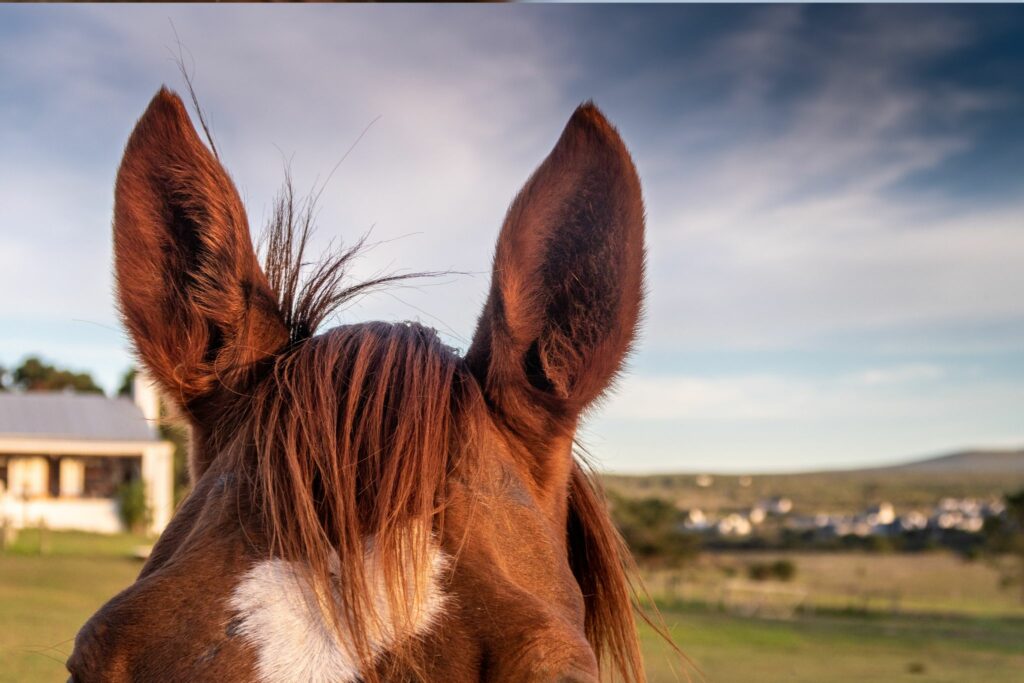
Photo Cred: Canva
They use their hearing to determine the source of any particular sound and whether it could be a potential threat.
Although horses can be desensitized, sudden or loud noises can still cause a horse to spook.
Chasing a Horse Away & Other Space Issues
When in a herd, horses exert dominance over other horses by forcing movement. One horse will “encourage” another horse to move by pinning its ears back, kicking, or biting. You’ve probably seen these behaviors among horses out in the pasture.
To a certain extent, you also exert influence over your horse on the ground and in the saddle by asking them to move a specific way.
How do you herd a horse from the ground?
Herding a horse revolves around reading their body language. A single twitch or specific lean of their body can communicate which direction they intend to move next.
Generally speaking, if you move towards the back half of a horse, they will move forward. If you move towards the front half, they should turn and go in the opposite direction.
Free-longing in a round pen is a great way to learn how your body language influences a horse’s movement!
Always observe a horse’s body language for signs that they could kick out at you. A stray hoof can cause serious injury.
What do you do if a horse doesn’t respect personal space?
As herd animals, horses are used to a hierarchy. This is true whether the horse is with a group of other horses or with you.
A horse that doesn’t respect personal space can be dangerous because you can get stepped on or knocked over.
Working on basic groundwork is a great way to start with a horse that doesn’t respect personal space.
If you feel uncomfortable around your horse, always consult a professional trainer. A trainer can help you with specific exercises to establish new, safer ground rules when working with your horse.
Frequently Asked Questions
Q: What will scare a horse?
The sudden movement of inanimate objects or other animals is sometimes enough to scare a horse. Loud sounds are also fair game for spooks.
But as any horse owner will tell you, horses can show fear toward basically anything!
Q: How do you chase a horse away?
Waving your arms at a horse or flicking a rope or flag will generally move it away.
Q: What causes a horse to get spooked?
Unfamiliar sights and sounds can cause a spook. Horses have keen senses of vision and hearing, which means they may spook at things almost invisible to humans. The scent of a potential predator is also enough to scare a horse.
Q: What sound scares horses?
Sudden, loud, or strange sounds are often enough to scare a horse. Windy days often cause strange sounds and spooky horses.
Parting Thoughts
Horses are amazing creatures that have been domesticated for thousands of years. While they are generally calm and gentle animals, they can also be easily scared.
By understanding what scares a horse and why we can take steps to avoid triggering their natural instinct to flee. We can also help them feel more comfortable in new and unfamiliar situations.
P.S. Enjoy this article? Trot on over to:
- Horse Riding Concussions: What I Wish I’d Known
- 3-Day Eventing: Learn the Lingo
- Crow Hopping Horses: How to Fix Frisky Behavior
- 5 Reasons to Switch (One K Defender Air Helmet Review)
- Safe or Sorry: How Often to Replace Horseback Riding Helmets
- 8 Best Horse Riding Helmets for Hot Weather Relief
- Tot to Trot: 5 Best Riding Helmets for Toddlers
- Horseback Riding Safety Equipment That’s Worth Every Penny
- Equestrian Hit Air Vest Review: My Favorite Fall in 30 Yrs
Sources
- Sympathetic Nervous System (SNS): What It Is & Function (clevelandclinic.org)
- The Basics of Equine Behavior | Equine Science Center (rutgers.edu)
- Become Your Horse’s Herd Leader through Groundwork (horseillustrated.com)

